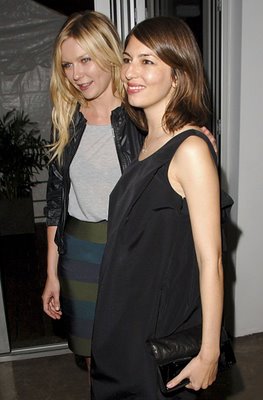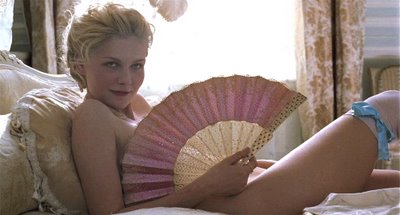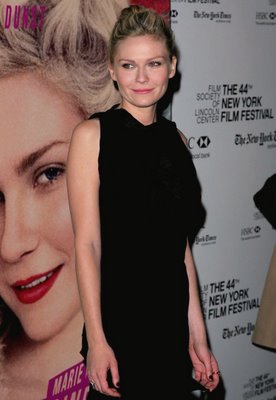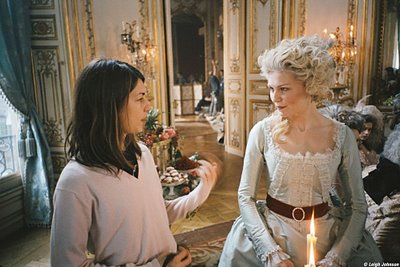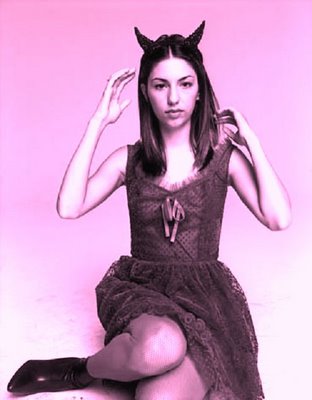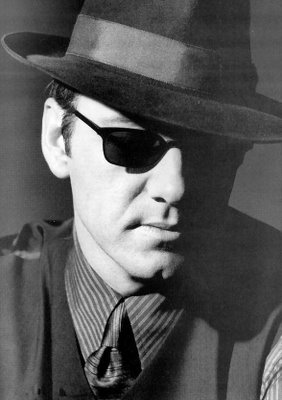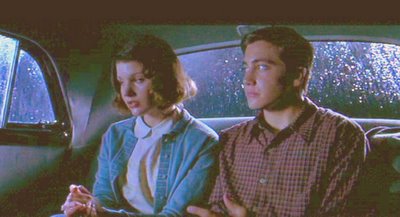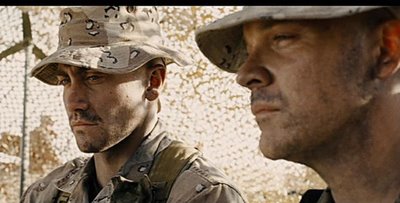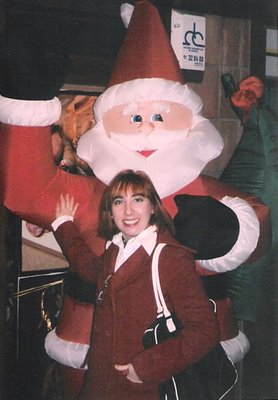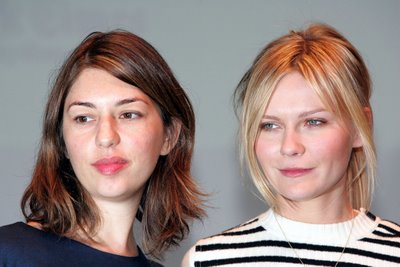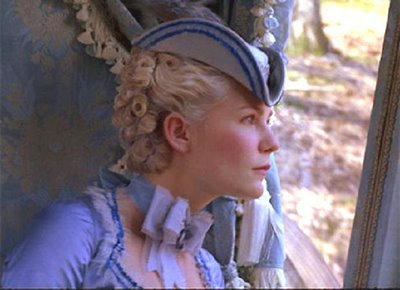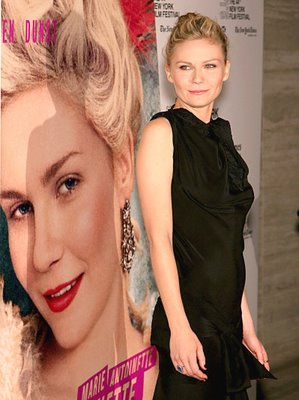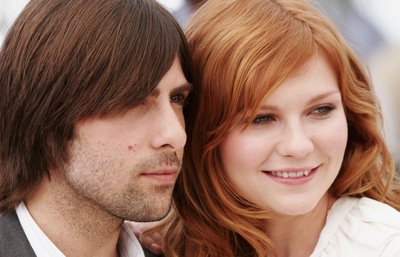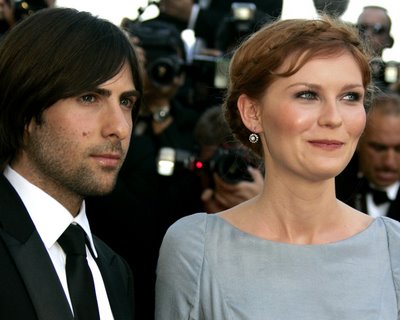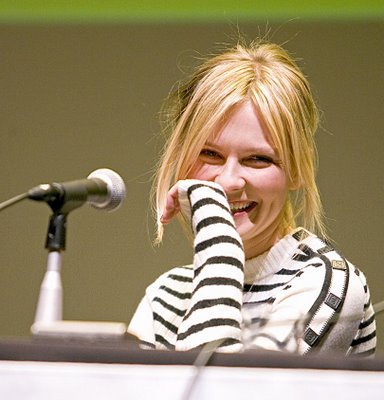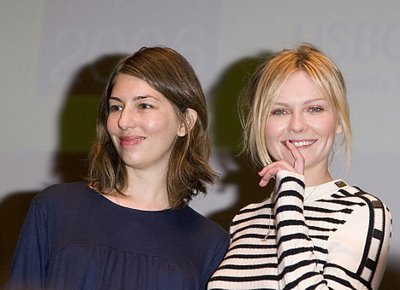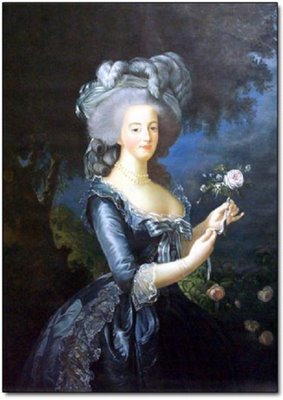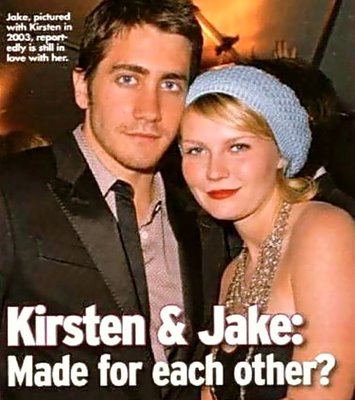
"The music reflects Coppola’s intention to tell the story in a modern way. While writing the script, she found inspiration from the New Romantic pop music movement of the 1980s -which was itself heavily influenced by 18th century ideals of extravagance. New Romantic artists such as Bow Wow Wow ("I Want Candy") and Adam Ant (“Kings of the Wild Frontier”) celebrated glamour, luxurious fashion, and hedonistic fun during that period as a kind of counterpoint to both the boredom of classic rock and the primal anger of punk music.
Coppola saw the music as a modern lens through which to view Marie Antoinette –and songs such as “I Want Candy” seemed to serve as a perfect, modern expression of Marie Antoinette’s impulses to find fulfillment through pleasure.
Coppola turned to music supervisor Brian Reitzell (who worked on her previous films, Lost in Translation and The Virgin Suicides) to discuss music in the tone she was thinking of while writing. Reitzell mixed “Versailles CDs” that included such artists as Bow Wow Wow, New Order (“Ceremony”), Adam Ant, and other post-punk romantic music.”
“It was all very organic,” he continues. “The story dictated the music, which follows the dramatic arc. We set it all up in the opening credits with the Gang of Four song “Natural’s Not in It” -which prepares you musically and lyrically for what’s going to happen. Later, there is an Aphex Twin piece, "Jynweythek Ylow”, which is played when Marie Antoinette first enters Versailles, which actually sounds like that place. What I love about it is that you can’t tell if it’s a harpsichord or string instrument that’s playing.”
Also included on the soundtrack are even more modern groups such as The Strokes (“What Ever Happened”), Squarepusher (“Tommib Help Buss”), Air ("Il Secondo Giorno [Instrumental]"), The Radio Dept. (“Pulling Our Weight,” “Keen on Boys”), and Windsor for the Derby (“The Melody Of A Fallen Tree”).
The eclectic blend of sounds, Reitzell maintains, “makes it a lot easier to put yourself in the movie. The music resonates because it shows how these people really were. For most of the movie, Marie Antoinette is an adolescent and it would have been a lot harder to get across her teen angst with a Masterpiece Theater type of soundtrack.” The result is this double disc Verve Forecast release, “a post-punk-pre-new-romantic-rock- opera odyssey with some 18th century music and some very new contemporary music,” as Reitzell calls it." Source: Vervemusicgroup.com

Disc 1
1. Hong Kong Garden
2. Aphrodisiac
3. What Ever Happened
4. Pulling Our Weight
5. Ceremony
6. Natural's Not In It
7. I Want Candy
8. Kings Of The Wild Frontier
9. Concerto In G
10. The Melody Of A Fallen Tree
11. I Don't Like It Like This
12. Plainsong

Disc 2
1. Intro Versailles
2. Jynweythek Ylow
3. Opus 17
4. Il Secondo Giorno
5. Keen On Boys
6. Opus 23
7. Les Barricades Mysterious
8. Fools Rush In
9. Aphex Twin - Avril 14th
10. Sonata in D minor, K.213: Andante
11. Tommib Help Buss
12. Tristes Apprets, Pales Flambeaux
13. Opus 36
14. All Cats Are Grey

